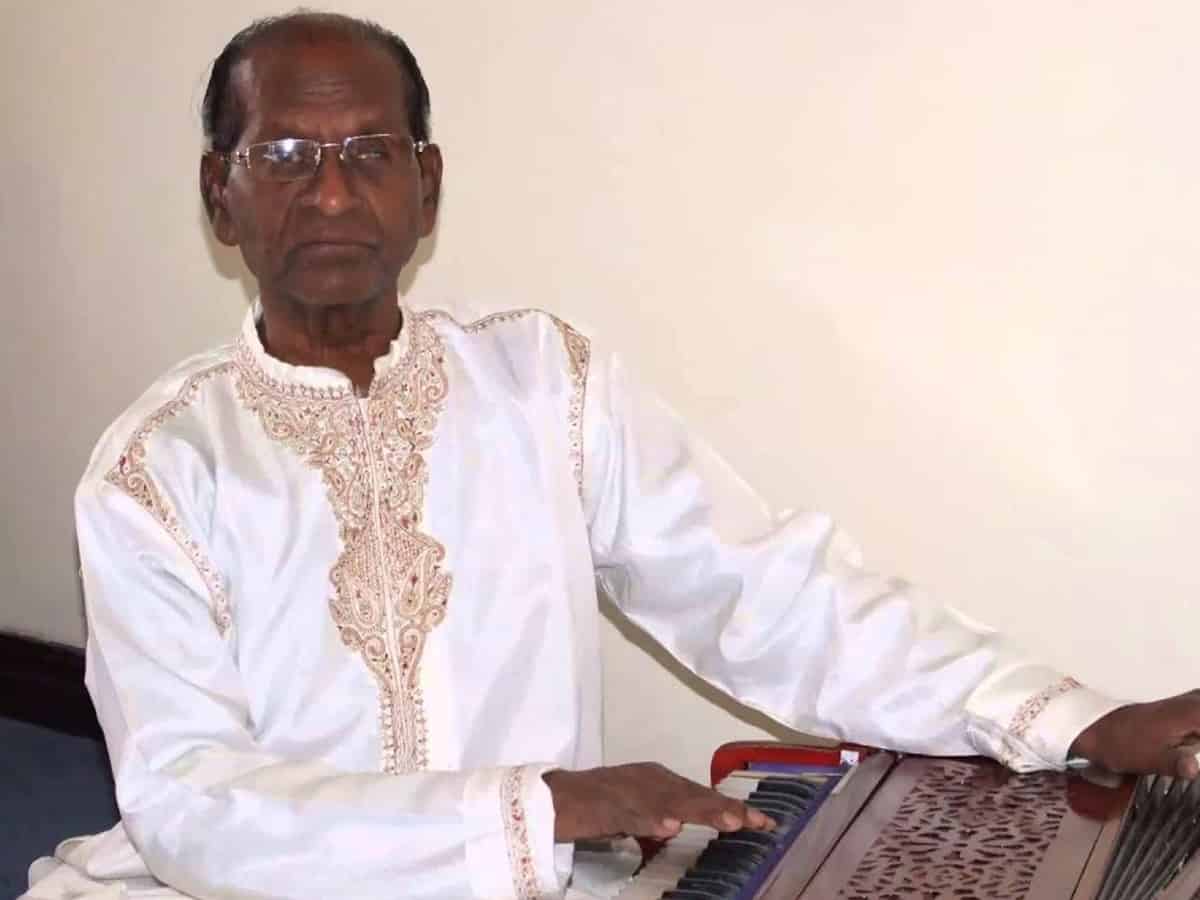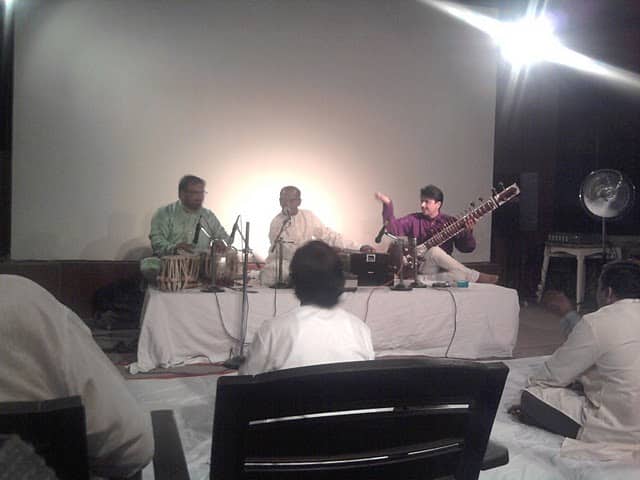
Hyderabad: Is ghazal losing its shine in the city of domes and minarets? Not exactly but it has definitely taken a backseat. Although it remains a popular genre of Urdu poetry, there are not many takers for it. Bollywood numbers and peppy beat songs have stolen a march over what used to be an integral part of the music scene.
Time was when the devdhis of Hyderabad nawabs and noblemen used to reverberate with ghazals. Cries of ‘wah-wahs’ and ‘mukarar irshad’ rent the air as ghazal gaiks (ghazal singers) held the audience spellbound. Not anymore. Today people plunge for beat and rhythm. The generation next particularly goes for groovy music. Reborn, remixed and repackaged. That’s the music fad today. And in this musical extravaganza, the traditional ghazal finds the going tough. It has to simply remain tucked away out of sight.
Unlike the Nizamian era, ghazals do not enjoy patronage today. None comes forward to sponsor the ghazal programme. Ghazal events are mostly confined to launch of big events like the ‘Jashan-e-Telangana’ organised by the government to showcase the Deccani culture or programmes hosted as part of New Year celebrations.

Of course, one turns to ghazals when one wants to relax and rejuvenate. And it is invariably the timeless melodies of maestros like Mehdi Hasan, Ghulam Ali, Jagjit Singh and closer home Vithal Rao and Mumtaz Khan. But there is no fresh talent or compositions around. Singers continue to dish out the popular ghazals of yesteryears.

The rise of social media, many believe, has adversely impacted ghazal concerts. People now prefer to listen to their favourite gahzal on the mobile phone rather than taking time to attend a ghazal show. Old Hyderabadis recall how during the Asaf Jahi era, ghazal programmes were organised on a regular basis. Singers regaled the nobles by rendering ghazals the whole night. Legendary ghazal singer, Vithal Rao, was very popular with the Nizam family. Once he was called to the King Kothi palace by the 7th Nizam, Mir Osman Ali Khan, and told to sing a particular ghazal of Siraj Aurangabadi. Vithal Rao seized the opportunity and mesmerised the Nizam. In fact, he cast a spell with this popular ghazal which is full of deeper meanings and altruistic emotions:
Khabar-e-tahayyur-e-ishq sun, na junoon raha na pari rahi
(On learning the amazing saga of love, neither the frenzy was left, nor did the sweetheart remain
Na to tu raha na to main raha, jo rahi so be-khabri rahi
Nazr-e-taghaful-e-yaar ka gila kis zaban se bayan karun
Ki sharab-e-sad-qadrah aarzu khum-e-dil main thi so bhari rahi
I was ‘me’ no more, you were ‘thee’ no more; only a state of oblivion remained
I am speechless to complain about the uncaring glances of my beloved
The wine of desire that filled the heart remained suppressed, concealed)
Prince Moazzam Jah, who wrote poetry under the pen name ‘Shaji’, used to hold mushairas every month at his Red Hills palace. Vithal Rao was a regular feature here and regaled the prince with the best of ghazals. He also sang the ghazals of the prince by composing them right there.
Vithal Rao, who was trained in classical singing by such great singers like Rauf Sab and Laxman Rao, knew all about voice, scale, pitch, sur, taal and ragas. He also learned to play harmonium and tabla – which helped him in ghazal vocalism. Gradually he developed his own style. Such was his versatility that within minutes he would figure out the raga in which a particular ghazal had to be sung. He rendered ghazals of all the Hyderabadi poets such as Makhdoom Mohiuddin, Shaz Tamkant, Khursheed Ahmed Jami. Apart from Hyderabad, he gave ghazal concerts in America, Kuwait, Dubai. Though Marathi was his mother tongue, he had a good command over the Urdu language since he studied through Urdu medium. No wonder his pronunciation was perfect. His larynx had an enormous range, depth and malleability and this added to his appeal. Hakim Ragi, Mumtaz Khan and Iqbal Quraishi were other popular ghazal singers of Hyderabad.
In recent times Khan Athar emerged as a good ghazal singer. A product of Fine Arts Academy, he sang all types of songs. But he had a passion for ghazal and dominated the cultural scene in Hyderabad. He was upset by the dwindling patronage for ghazal singers although government talked of promoting art and culture. Once he gave expression to his disappointment thus:
Kis ko ghazal sunayen, ghazal aashna hai kaun
(To whom should ghazal be sung, who’s conversant
Shehr-e-ghazal bata ke yehan reh gaya hai kaun
Oh, city of ghazal tell who is left here)
However, diehard ghazal aficionados are optimistic that this melodic form of poetry will not fade away. Right now, it may be passing through a bleak phase. But it is bound to change and ghazal will regain its pre-eminence.
